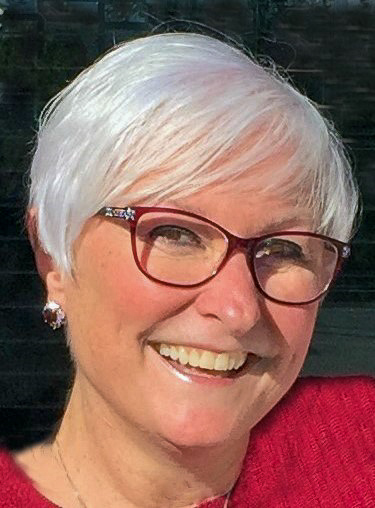
Following a 33-year career serving people with developmental disabilities, Kathy Bradley, Founder, CEO and Board President of Our Mother’s Voice, and a member of the Health Quality Innovation Network (HQIN) Patient and Family Advisory Council (PFAC), found herself once again as an advocate for both her father-in-law and mother who both suddenly declined into severe dementia.
Her mother, a lifelong activist for those without a voice in the United States, had lost her own ability to speak and required care in a nursing home. “Through my experience of working with people who are unable to speak, I saw it as divine intervention,” Bradley said. “I understood her, and I had time to care for her because I had just retired.”
Bradley’s experience included being a licensed nursing home administrator, so she knew the type of care her mother should be receiving but it was not happening. She shared her recommendations with staff, administrators, and trustees, but they did not fully embrace the information. Next, she presented her concerns to an agency overseeing the nursing home and they used her information as the basis to guide their next inspection.
“They found the same issues that I did, and the facility was forced to make changes, which improved the lives of everyone living there,” Bradley said. “We saw the changes being made and my sister said, ‘If God asked mom 20 years ago if she would go through this to help others in this facility, she would have said, ‘Yes.’”
While Bradley was happy for the improved conditions at the nursing home, she realized that others living in facilities across the nation may not have a trained advocate in their family, so she founded Our Mother’s Voice in 2010. Her nonprofit organization empowers families everywhere to be an advocate for better care.
Common themes that Bradley encounters when meeting with families include lack of treatment, mistreatment, the absence of people being treated with dignity, and residents not being consulted for preferences to treatment. Helping residents and their families continues to drive her as she moved from a career of advocacy to doing it for free.
“I like to help people,” she said. “When I have information that other folks do not have and a knowledge of the system, and I can help, then I feel like I have done a good thing. I spend hours researching for people who need information and do not know what to ask. It’s rewarding to empower families and to do it without putting a financial burden on them is a blessing.”
Bradley said she hopes her perspective in health care helps HQIN’s PFAC, a group of volunteers who provide feedback and suggestions to enhance quality improvement initiatives with doctors, hospitals, nursing homes and community partners in Kansas, Missouri, South Carolina, and Virginia. She carries the experiences of an administrator, patient, resident and family member, and believes that adds value to her perspective. She also applies knowledge gained from other HQIN members who serve people in various care settings across the country.
“I’ve seen the impact of good care and I’ve seen the impact of care that is not so good on the lives of people,” she said. “Having the ability to see both sides of the issue, and the experience of having done it both professionally and personally, it gives me a unique perspective and I hope it’s making a difference.”
